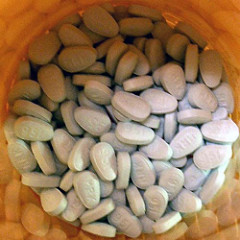
December 17, 2018
Recently, two studies published in Cell on probiotics have been getting a lot of attention.
I’ve written previously about probiotics, including when it would be appropriate to take a supplement, how to pick a supplement if you are going to take one, and the problems that can be associated with probiotics. Here are additional takeaways from the new studies.
–> The first study, which was conducted in healthy volunteers, showed that probiotics were shed to varying degrees in the stool, depending on the person. Because of this variation in colonization among different people, a “one size fits all” approach to probiotics may not work best. More studies may help tailor specific strains for people in the future. Individuals may have different responses to the same probiotic depending on their genes, the food they eat, their pre-probiotic microbiome and other factors.
–> The first study also showed that probiotics can change the gut microbiome, but how they change the microbiome is unpredictable and inconsistent. So probiotics, when you take them, may not take hold, and even if they do take hold, how they change the microbiome can be variable.
–> In the second study, subjects took a one-week course of antibiotics (ciprofloxacin and metronidazole). Researchers then either performed a fecal microbiota transplant (FMT) by giving subjects their pre-antibiotic stool back, or gave them a course of probiotics. The FMT patients quickly recovered their normal microbiome, but in the probiotic group there was a marked delay in the return to the way the microbiome was before patients got antibiotics. Does this mean you should never take probiotics before, during or after antibiotics? Not necessarily. It means that you should not use them indiscriminately. Speak with a doctor and consider the risks/benefits for your particular situation.
The average healthy person should eat well in order to optimize the gut microbiome, including consuming prebiotic and fermented foods.

